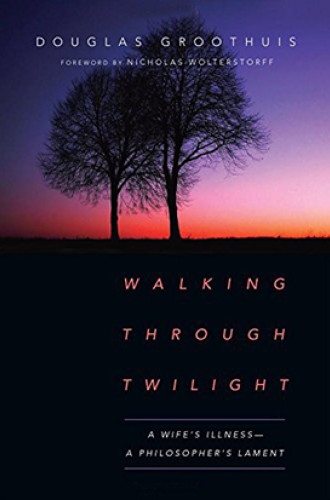A Christian apologist's memoir of suffering
Telling the story of his wife's tragic illness, Douglas Groothuis combines lament with grace-filled love.
This eloquently written memoir begins with a tragic reversal of fortune that came to Douglas Groothuis and his wife, Becky. Its opening lines reveal that Groothuis speaks not only for himself but also for Becky, a once talented author, editor, and member of Mensa who suffers from primary progressive aphasia (PPA), a rare disease that disables the speech and language centers of the brain. In poignantly described scenes—in their home, at a restaurant, in an art gallery—readers meet an embattled couple, one of whom is nearly completely unable to speak or understand what she hears. “She must fight a bloody war,” he writes, “to secure the simplest word.”
Groothuis, who teaches philosophy of religion and ethics at Denver Seminary, does not offer a timeline of his wife’s mental deterioration. Instead, he recounts many experiences along what he calls the “darkening footpath.” And he does not mince words. His willingness to be dead honest about his confusion, anguish, denial, anger, and lament is both painfully moving and biblical in its realism. In his introduction to the memoir, Nicholas Wolterstorff aptly captures this tenor when he writes that Groothuis “does not flinch from the painful reality this ravaging disease has wreaked in his life and that of his wife.”
Each chapter bears out this unflinching honesty, as do chapter titles like “Rage in a Psych Ward,” “The Temptation to Hate God,” and “Learning to Lie to My Wife (as Little as Possible).” Under the tyranny of Becky’s illness, Groothuis writes:






